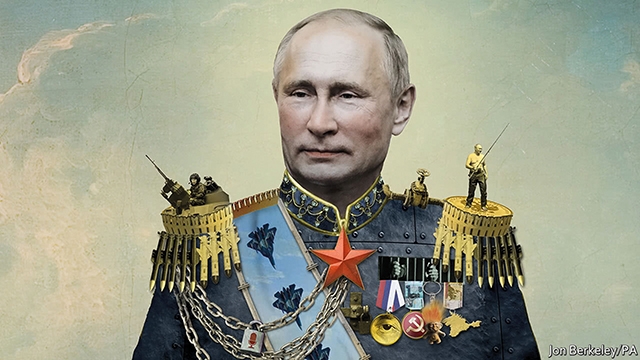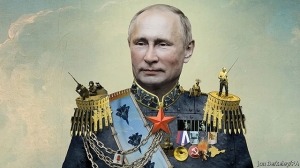The Last Tsar of Russia
Op-Ed
A week or two ago, most of the scholars of Putin’s Russia would think that they had solved each and every puzzle that this regime had to offer – Putin had nothing left in tank to shock and surprise them.
Back in January, when he first mentioned the “possible initative” of introducing changes to the Russian constitution, the West’s collective eyebrow was unmoved: most of the changes were to be expected. The single novelty was his insistence to remove the word “successively” from the rule dealing with the procedures of electing a president. This was viewed as a rather formal, “for-the books” attempt of transforming Russia, with Putin firmly remaining in power, although nominally he would not be the “first man”.
In less than two months, Putin proved once again that he can always surprise us when he decided that it might be a tad too hard for his liking to rule the country from behind the scenes, either that, or he decided he was belligerent enough not to pretend anymore. Many thought that since he already had experience of doing that in 2008-2012, running the country from the seat of Prime Minister with President Medvedev reduced to providing timed nods to his decisions, he’d pull something like that again – which position he’d settle for was the only point of argument.
The question now is why Putin is putting up this charade: if he didnt want to go, he’d have just removed the “successive electing” part through one of his edicts. And it’s not like he would have been the first: other eternal leaders of the Post Soviet world already resorted to this method, such as Belarus’ Lukashenko and Azerbaijan’s Alyev, in 2004 and 2009 respectively. The Kazakhstan constitution also rather helpfully clarifies that while the president can be elected only twice, this restriction doesn’t apply to the First President.
Russian sources claim that Putin was in fact against changing that bit in the constitution. And probably because he took such a “principled” stand on this, man of superior morals that he is, it fell down to a member of the Duma from the majority “United Russia” party, to address the Duma with the initative to “annul” the previous presidential terms of Putin. Now Tereshkova should need no introduction to anyone from the Post Soviet world, but it seems that the “First woman in space” decided she has to leave a much more dubious legacy in history.
The same sources also claim that Putin views this option favorably. Not that anyone thinks that it took much persuasion to get him agree to it. He’s got only one condition, apparently: the Constitutional Court of Russia should deem this procedure not against the constitution. Knowing the high degree of indeprendence of the Russian judicial system, nobody entertains the notion that the court’s decision will be any different to Tereshkova’s opinion.
Now if you wanted to conduct a serious analysis of this absudist political sketch, you might ask yourself just why Putin is so adamantly against the successive terms? The naïve amongst us might think that Putin is trying to dupe us into thinking Russia is a democratic country. Well, the annulment of previous terms throws that theory out of the window. The only plausible explanation is offered by a famous line from F. Tyutchev’s poem: “ Russia is understood not by the mind”.
Another question one might ask is why Putin optted against the “rule behind-the-scenes” option. Especially considering his experience, no-one in their right mind will claim he wasn’t the main man in 2008-2012, even though President Medvedev did his best to pretend he mattered. In 2008, Putin was 55 years old, today he is 67. Considering the fact that the presidential term has been extended from 4 to 6, in 2024 he will be 71 and one hopes that his body and mind at least have limits. Perhaps the all-powerful President of Russia is aware of time creeping up on him and doesn’t relish the manipulations that the behind-the-scenes option entails. 55-year-old Putin would easily handle that, the 71-year-old version, and for six years at that, might encounter some difficulties, so he probably doesn’t want the extra headaches.
Clinging to power is the basic instinct for every dictator out there: they change laws, or just ignore them. It’s hard to say which of these two Putins went with here. One thing that’s certain, though, is that President Putin embarked on that rocky road that the most flamboyant African dictators trod before. To annul 4 (!) terms of presidential tenure can only be compared to what the infamous Ugandan dictator Idi Amin did, when he nonchalantly declared himself, in response to the United Kingdom freezing diplomatic relations with his regime, that he was, OFFICIALLY, “the conqueror of the empire of Great Britain” and the rightful King of Scotland.
Despite his propensity to seize lands of other sovereign nations, Putin so far hasn’t declared himself as the Grand Prince of Kievan Rus or the Hetman of Ukraine. Despite that, he can be called the Last Tsar of Russia. The Russian System will try to leave Putin in power as long as it can, as Putin and Russia have become synonymous.
And one last question: What will the 83-year-old Putin do in 2036? Will he enjoy a much deserved (and delayed) retirement? Or will he decide to take some rest and move behind the scenes? Or maybe annul again? To be honest, it would save all of us all the headache if he just declared himself President for Life. As Tsar’s were. It’s only fitting.
But before that, on March 17, 2024, Russia will have presidential elections. And the law-abiding citizens of Russia will cast their votes and elect Putin as if they have never done it before.
By David Bragvadze, Georgian Institute for Security Policy












